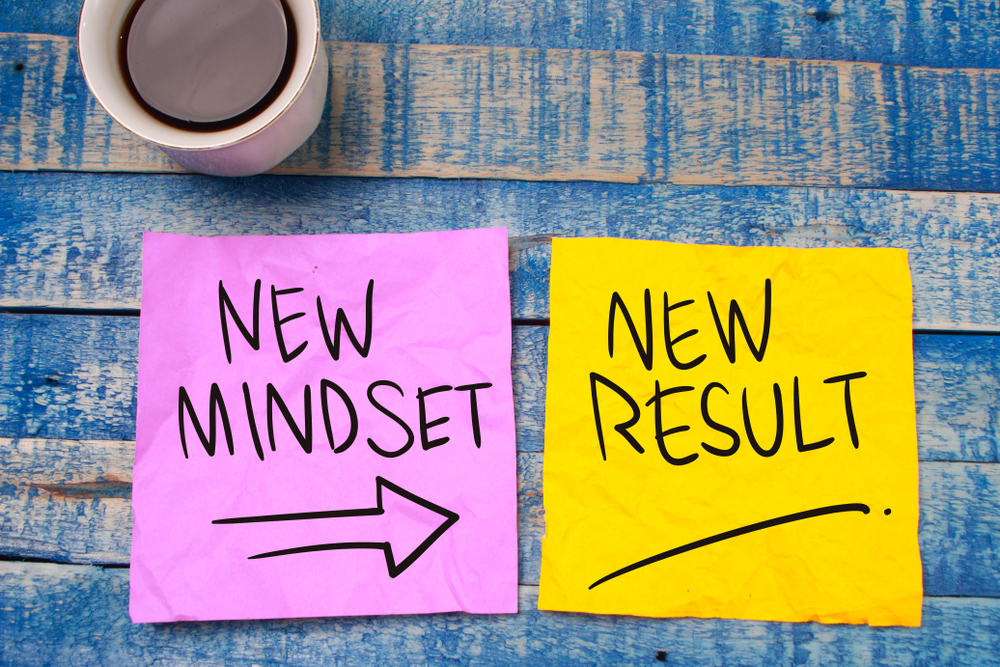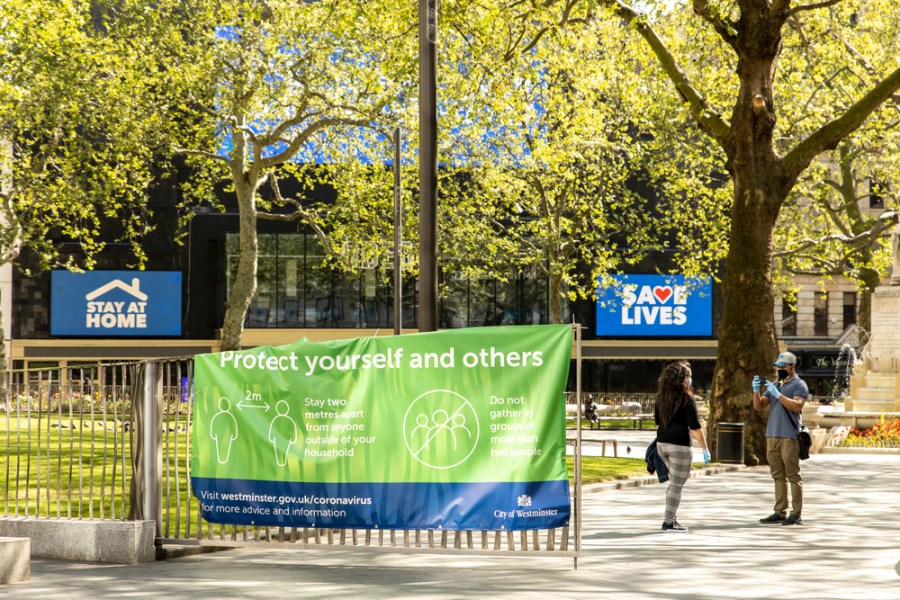Has your healthy eating regime and your positive mindset gone to pot during lockdown? Rapid change therapist Howard Cooper reveals how to get back on track with your goals and attitude as we prepared to move out of lockdown.
Over the past few months we’ve all been caught in an unprecedented situation which is likely to have had an effect on you mentally and physically. I’ve been a rapid-change therapist helping people to transform both their thinking and behaviours for the last 17 years and more recently, I’ve spoken to hundreds of people for whom being in lockdown has had a profound impact on them.
Many people have been wavering under the stress and uncertainty of it all, causing them to struggle to keep to a healthy weight, stay fit, or even maintain a balanced and healthy mindset.
Now that some of us may be returning to work you may suddenly find yourself caught in a situation where uncertainty isn’t over, but you have even fewer daily opportunities to hop on the exercise bike at home or go for an early-morning run round the park.
So here are some tips and advice to help you effectively manage the process of getting back on the straight and narrow as lockdown restrictions are lifted…
TIP 1: Celebrate success
Doing something is better than nothing. Instead of berating yourself for not being able to operate at the same level as pre-lockdown, get started and celebrate the actions you do take.

TIP 2: Learn to ride uncertainty
Get comfortable with not needing guarantees about how the future will unfold. If you tell yourself you can’t exercise because you feel too anxious not knowing whether you’ll have to go back into lockdown, you’ll never get back into it.
TIP 3: Reconnect with the WHY
Re-focus on the motivation behind why fitness is so important to you. Keeping this ‘WHY’ in mind helps to keep you motivated and focused. Let’s face it, without a compelling reason to take action, you aren’t likely to do it or keep it up.
TIP 4: Focus on just one thing
It’s easy to fall into the mindset where everything becomes overwhelming. Juggling work and family issues can push you into doing nothing. But focusing on the fact that you are only ever really doing one thing at a time can help. Narrow your focus to just one thing.
TIP 5: Pace yourself
Remember, it’s a marathon, not a sprint. Too often people try to sort out ‘falling off the wagon’ by going at some new life change like a bull in a china shop and then find it unmaintainable. Better to start up again small with the long term in mind.
Dealing with fearful thoughts
However, for some people, specific problems or concerns may have come to the fore as a result of the restrictions we have faced over the past few months. If you have found yourself struggling financially, feeling low or comfort eating, here are some useful strategies to help you get back on track to a more positive mindset and situation.
What if you have money worries due to lockdown?

Worrying about money doesn’t make money but having clear thinking can help navigate financial challenges more effectively. So, recognise this and give yourself permission to let go of the worry. Then start asking yourself better questions that help you focus on more effective areas. For example, are there other ways of earning money that you haven’t considered? What skills or knowledge do you have that others might pay you for? Rather than focusing on the problem, clear thinking and asking better questions can help focus and move you towards greater peace of mind.
What if the recent uncertainty of life has made you feel stressed?

How much time a day do you spend worrying about whether it’s going to rain or not? Not much, right? Why? Because you know deep down you can’t control the weather. Taking mental ownership over things you can’t control will inevitably lead to psychological suffering. So, to better deal with uncertainty, take a moment to make a list of all the things that you can control, (e.g., what you eat, when you exercise, when you go to bed, how you communicate with loved ones, etc.). Then make a list of all the things you can’t control, (egg, whether the Earth spins, how long lockdown lasts, how other people will behave after lockdown, etc.). Investing your energy focusing on the things you can control rather than those you can’t will help you create a better and more resilient mindset.
What if you are feeling low and unable to overcome a negative mindset?

There are two aspects to feeling low. There is the transient, unpleasant feeling labelled as feeling down or lethargic and there is likely to be your narrative around feeling low too, ‘Why am I feeling down?… I shouldn’t be feeling down… I must be depressed… why can’t I do anything, etc?’ It’s often the latter thinking pattern that perpetuates something that is usually temporary. So, instead, if you notice that you aren’t feeling resourceful or positive, practise noticing those feelings as temporary and remember that they will pass. Notice that having these feelings doesn’t mean anything about ‘you’ as a person. Remember, it’s OK for people to feel down from time to time.
What if you have been overeating to cope with lockdown and you feel frustrated by it?

Get curious about what emotions or feelings specifically are leading you to comfort-eat. Is it boredom, anxiety, stress, or tiredness? Once you have identified these, pay better attention to those states beginning to build up inside so that you can do something more effective to change your state. Maybe it’s going for a run, taking a bath or cooking something healthy. In other words, don’t wait for the negative sensation to build up so much that you are acting out of desperation to change your state. Identify and tune into your personal triggers and you’ll head off the desire to comfort-eat before you reach for that unhealthy snack.
More information on Howard Cooper

Photo: Elizabeth Benjamin
Howard Cooper is one of Britain’s leading ‘Rapid Change’ experts. A qualified hypnotherapist and Master Practitioner in Neuro-Linguistic Programming (NLP), he specialises in helping people create rapid shifts in their thinking. If you are worried about Lockdown or feel you’re struggling with Coronavirus anxiety, help is available through Howard’s new 12-week Corona Anxiety Support programme, which starts on Monday 18 May. For more details, visit: https://rapidchange.works/coronaanxiety







